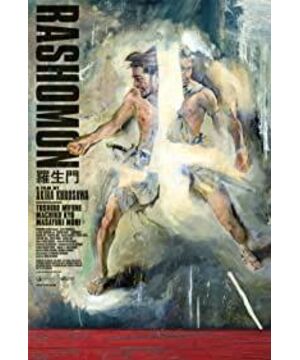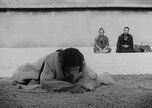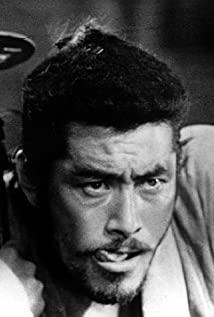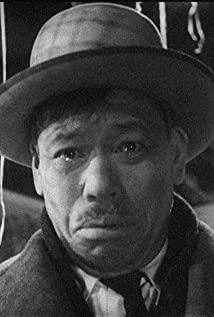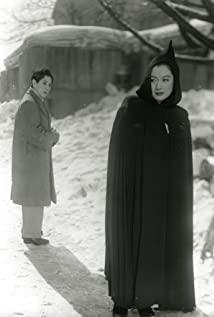Everyone is consciously or unintentionally whitewashing themselves, covering their ugliness and unbearableness.
Both Tajomaru and the samurai describe themselves as heroes, and even if they die, they should describe themselves as the one who died the most tragic. In fact, both of them were cowardly. As a samurai, the deceased chose to cast aside the woman who he was unable to protect. Facing the woman's provocation, the two had a timid duel because their self-esteem was bruised. As brave and fearless, the samurai only died in humiliation under the sword of others, not as he said, and ended his own life decisively. They all beautify themselves in unison, to be the most invincible prisoner, to be a persevering, persevering deceased.
Zhensha concealed her vicious heart of being abandoned by two men as a woman, turned into anger, provoked a fight between the two, and described herself as a weak and helpless woman, using her imaginary syncope to whiten herself and fabricate the facts. Even if she is abandoned and unbearable, she must describe herself as a great woman who is unyielding and unyielding.
The woodcutter, as a third party, witnessed the whole process with his own eyes, but he still refused to tell the truth-because he had enjoyed the benefits of a fisherman, he obtained the treasured sword effortlessly and unknown. He thought that his silence would not affect the determination of the facts, but he did not expect that everyone is just beautifying the truth according to their own desires, which will make the case more and more confusing.
Once it has a relationship with the interests of the truth, everyone will unknowingly become a player in the game, everyone will make calculations for themselves, and no one will be able to state absolutely objective facts, even if it is a verb or adjective. It will deviate from the truth in the mouth. The more one desires protection, the greater the deviation from the truth.
It can only be said that the whole process witnessed by the woodcutter is closer to the truth, but it is not the absolute truth. As an observer, everyone has their own standards in their hearts, and what they say often changes their taste. There is no pure other in the world. Everyone consciously or unconsciously uses their own inner ruler to measure others, and the parties are trying to use their inner selfish desires to beautify themselves and tamper with the facts.
As passers-by said, perhaps people's compassion is a disguise, and people prefer to forget those bad things and believe in what they think is good.
To understand this movie from another angle, it is no longer important who the real murderer is. None of them shirk their crimes, they just want to make themselves more dignified and decent.
In order to retaliate, the samurai could tell the truth of his murder; Tajomaru could justify himself, but he did not cover up the fact of his murder, but described the fact of his murder as more heroic and invincible. Masa's account is not intended to help reveal the truth, she just wants to appear more consistent with the steadfastness required by the ethics of the time. In the end, the question discussed by Rashomon is not who killed the samurai, but why the stories of the four parallel perspectives are so different, and the behavior of the three parties in the case is so different. The more people lack something in the truth, the more they tend to embellish themselves and make up for regrets in their statements.
Everyone is selfish and dishonest, even if the passers-by who took shelter from the rain together exposed the selfishness and greed behind the woodcutter's failure to tell the truth, but robbed the abandoned baby's clothes, saying "If you are not selfish, you can't live" .
If so, is this world worth trusting?
I think it's still worth it. But this kind of trust itself may be just a disguise, because people only believe what they want to believe, and pure facts and pure truths do not exist.
The walking monk sighed at the beginning of the film that he no longer had hope for the human soul. He said that this sense of despair is more terrible than robbers, plagues, famine, fire and war. At the end of the film, when the rain stops, the woodcutter is ashamed of his behavior and decides to take the abandoned baby. The walking monk changed his mind and said: I think I can continue to maintain faith in human beings. Where did the confidence come from, maybe it was the kindness in the woodcutter's heart. If there is good in the heart, the human soul is still noble, and the world is still worthy of trust. Perhaps this is Kurosawa Akira's hope for human society expressed through the mouth of a monk.
View more about Rashomon reviews


